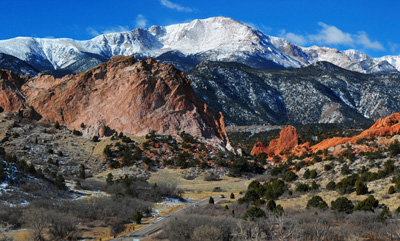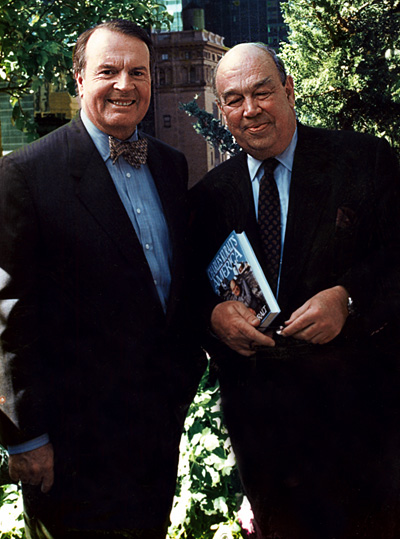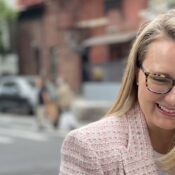To me America is as beautiful as ever in more ways than one. Our land is filled not only with natural beauty, but also with the beauty of people whose faces reflect every corner of this earth and whose character is distinctively American and recognizable as such anywhere on the planet. In that sense our nation has grown more beautiful with age. I mean no disparagement of the past. The American story has been inspiring and continues to be. The central and enduring theme of that story remains the quest for freedom and opportunity in a land where each person can think and dream and create new possibilities for a better life. Craig Ferguson, the Scotsman who hosts CBS Television’s The Late, Late Show, has become a proud American citizen because, as he once said in an interview, “America is the best idea for a country anybody ever had.”
We’ve had setbacks along the way of course; hard times and wars, struggles against the enemies of human liberty including ignorance, intolerance, injustice, and even slavery. We’ve come through though. We have “overcome” as the song says. And, taking full advantage of our birthright, we’re still here in every part of this country, thinking, working, playing, praying, and pursuing happiness in our own ways. The journey isn’t over, but look how far we’ve come!
The people of France grasped the essence of what this country is about more than a century ago when they gave us Bartholdi’s famous statue that stands in New York Harbor, a woman holding high a lamp. We call her the Statue of Liberty. They named her La Liberté éclairant le Monde or “Liberty Enlightening the World.” I think she’s still beautiful, don’t you?
So did a man I knew who spent years on the road, traveling to every state in the union, discovering America and Americans. Charles Kuralt died on the Fourth of July, 1997. He was my friend, longtime CBS colleague and predecessor on CBS News Sunday Morning. The “road” for him did not mean the interstate. And the people he sought out were not in the big-city centers of finance, industry, and mass media. Kuralt and his camera crew used the back roads to get to the small towns where they found those wonderfully colorful individuals whose stories would often end the CBS Evening News. Kuralt believed that these Americans could tell us at least as much about the character of this country as the politicians and other supposed leaders who populate most of the rest of the news stories on a given day.
When people asked Kuralt about the mood of the country or how Americans felt about some burning issue of the day, he would always smile and tell them that America is much too big a country, too diverse, too free to pigeonhole people the way the pollsters try to. “It depends on who you are and where you are, what’s going on in your life, and what your dreams are,” he’d say. Kuralt hated the idea of dividing the people of this country into voting blocks or into red states and blue states.
After traveling around this country so much, Kuralt used to say he didn’t think in terms of state borders anymore. He thought instead of geography and geology. He thought of the great natural formations of rock and water, the mountain ranges, the lakes and rivers. He thought of canyons and forests, starkly beautiful deserts, and fertile plains. These were what shaped not only the land, but the people too, and determined what was important to them, how they would live, what they would love, the mouth-watering regional foods they’d eat, and the delicious accents in which they’d speak. These things meant much more than lines on a map. With modern technology comes some creeping homogenization of course. You’ll see the same signs in the airports and on the interstates, hear the same accents on the radio and TV, and eat the same burgers, pizzas, and fried chicken at the fast-food chains coast to coast. But you can still find the real thing, the real accents, foods, music, and people of the real America. They’re out there if you look for them. Kuralt was always looking for them.
As Kuralt and his crew would pull into a small town, there’d be a welcome sign telling travelers what the locals wanted to boast about. What year it was founded in New England, population in the rural south, elevation in the mountain states. Once at a CBS Radio convention in Phoenix, a station owner from Montana came up to Kuralt and me, introduced himself, and said, “I want to ask you two Charleses a question. How far can you see from your house?”
I was living in New Jersey at the time, and Kuralt in Greenwich Village. “Not much more than across the street,” we admitted.
The Montana man beamed and told us, “Well, I can see four states from my house.”
Kuralt nodded and said, “Elevation is important!” and went on to tell us about how he and the crew went up to Pikes Peak in Colorado, 14,000 feet. “Great view from there,” he said, “makes you feel you were looking clear across the country!” He then told us how in the summer of 1893, an English instructor named Katharine Lee Bates from Wellesley College went west to teach a short summer course at Colorado College. And one day a group of teachers took a covered wagon ride to Pikes Peak. Miss Bates was worn out from the wagon ride and the walk to an observation deck at the pinnacle. But when she looked out and saw the sight, she was so thrilled and inspired that she pulled a piece of paper out of her bag and started writing a poem which she called “Pikes Peak” to be published two years later in the Fourth of July edition of The Congregationalist newspaper. The poem has since been engraved on a tablet at that viewpoint, and when visitors see it they smile in recognition because they already know the words. And so do you:

O beautiful for spacious skies,
For amber waves of grain,
For purple mountain majesties
Above the fruited plain!
America! America!
God shed His grace on thee,
And crown thy good with brotherhood
From sea to shining sea!
The whole country got to know those words when they were combined with the music of a Samuel A. Ward hymn into the song we now know as “America the Beautiful.” Miss Bates wrote several more stanzas. If you’ll indulge me, it may be time for another:
O beautiful for liberty
Whose light shines for us now
As through the years of pioneers
It shined to show them how
America! America!
God’s Grace is with us still
With brotherhood each dream of freedom’s promise
We’ll fulfill.
Become a Saturday Evening Post member and enjoy unlimited access. Subscribe now




Comments
God save America! We are now engaged in the most dangerous struggle of this country’s existence. If freedom-lovers falter, if they do not preserve and protect the principles upon which our Republic was founded, the blessings of liberty could vanish from our midst for untold decades.
Should darkness cover this last bastion of hope, where will we then seek the light?
I think this story hits the nail on the head. Most of us are to busy concentrating on the ugly to notice the beautiful. God Bless America!